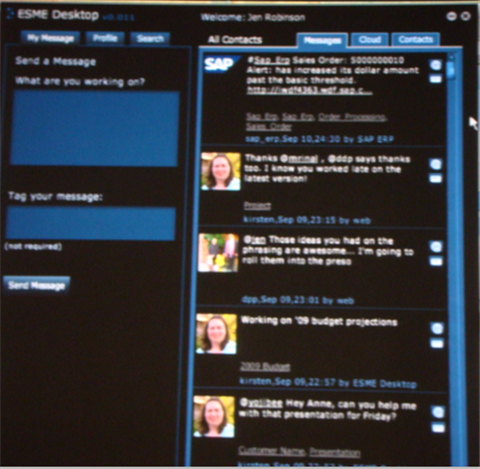Startups: Where's the business technology?

This week brought a bevy of product and company launches courtesy of the DemoFall and TechCrunch 50 conferences and a lot of it looked fun. The problem: You may never hear of some of these companies again. What's a business technology manager to do?
Admittedly the question is a bit of a head scratcher. Startups are the lifeblood of the economy. And it's fun looking for the next Google...or Oracle. But a lot of the stuff you've seen this week either has little enterprise use, is too raw or would get you fired if you seriously pitched buying anything from said startup. We've covered the bases to ferret out business tools (see Andrew Mager and Sam Diaz's coverage) and News.com just concluded its week of launches theme, but it's natural to ask 'what's in it for me?'
Through that filter it's hard for a startup's technology get any attention from the enterprise. The new technology meets the enterprise conundrum was apparent on Wednesday at SAP's Demo Jam. While Demo Jam wasn't focused on startups the demonstrations lacked a big bang. Sure, the demonstrations solved problems, but weren't groundbreaking. One of the demonstrations integrated
Also see: Demo Jam Live: SAP meets enterprise 2.0; The ROI of spell check
But something is missing here. Shouldn't enterprise folks be more interested in the early technology and startups? I'm not saying they should go crazy, but at least lift an eyelid once in a while. With that issue in mind here are a few thoughts on evaluating these new technologies--or the new spin on older technology.- Try to be open minded. I usually go right to the potential returns. I get pitched startups all the time, but my standard reply is this: Wake me up when you have a few customers. And nudge me when these customers are actually paying you. Do ping when you get your third round of funding. It's a weakness of mine that I shut down startups before they are three words into their elevator pitch, but it's the result of years of overhyped companies. I still remember a Red Herring cover proclaiming how Transmeta was going to change everything. However, business technology managers have to keep their eyes peeled for new technologies that may matter--if not today, but down the line.
- Realize you may support this stuff indirectly. Whenever there's a hot new service--Twitter, Facebook or whatever--you'll wind up supporting it. Why? Your employees will bring the technology to your company. There could be security risks, management headaches and other problems. It helps to know what's coming down the pike so you can deal when half of your employee base downloads Google Chrome for giggles.
- Think big. Some of these newfangled companies could change the game within your enterprise. For instance, a new collaboration technique may look swell in some enterprise 2.0 mashup that could save on travel. Always keep your eyes peeled for game changers.
- Look for buddies. Startups with big technology vendors backing are in a different league than those without support. Case in point: Opsware, now part of HP. A few years back Opsware was Loudcloud and fumbling for a strategy. It reinvented itself as Opsware and even though folks were skeptical it had a tech giant as a customer--EDS. If Opsware was good enough for EDS' data centers it has something going for it. Opsware eventually pared back its reliance on EDS for revenue. Now both Opsware and EDS are owned by HP. Funny how that works.
- If you have to buy from a startup escrow the code. If there's a startup that has some technology no one else has it makes sense to put the source code in escrow. Why? The startup could go belly-up and you need the raw material to maintain the application for your company.
Any other startup thoughts you have?